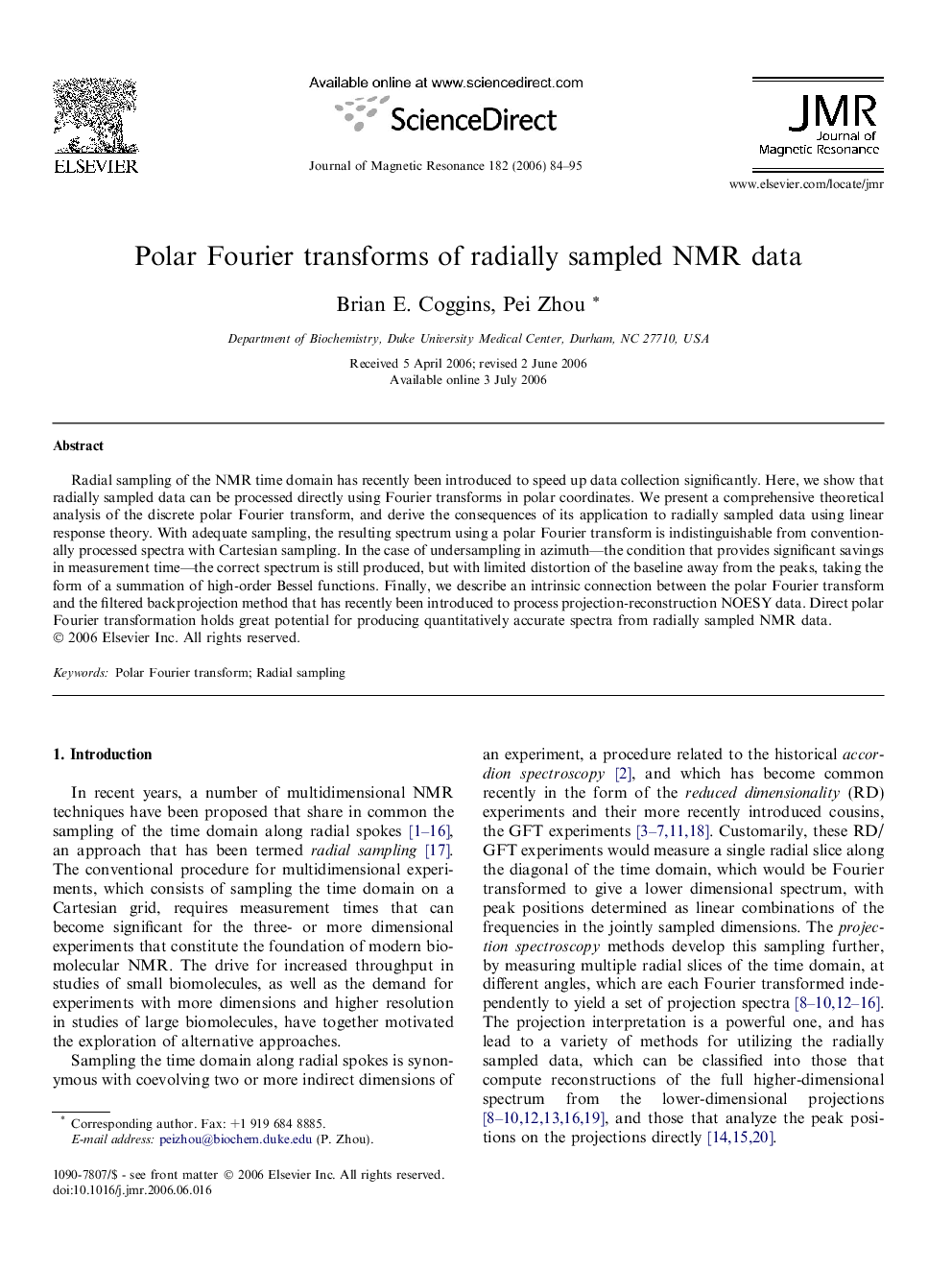| Article ID | Journal | Published Year | Pages | File Type |
|---|---|---|---|---|
| 5407598 | Journal of Magnetic Resonance | 2006 | 12 Pages |
Abstract
Radial sampling of the NMR time domain has recently been introduced to speed up data collection significantly. Here, we show that radially sampled data can be processed directly using Fourier transforms in polar coordinates. We present a comprehensive theoretical analysis of the discrete polar Fourier transform, and derive the consequences of its application to radially sampled data using linear response theory. With adequate sampling, the resulting spectrum using a polar Fourier transform is indistinguishable from conventionally processed spectra with Cartesian sampling. In the case of undersampling in azimuth-the condition that provides significant savings in measurement time-the correct spectrum is still produced, but with limited distortion of the baseline away from the peaks, taking the form of a summation of high-order Bessel functions. Finally, we describe an intrinsic connection between the polar Fourier transform and the filtered backprojection method that has recently been introduced to process projection-reconstruction NOESY data. Direct polar Fourier transformation holds great potential for producing quantitatively accurate spectra from radially sampled NMR data.
Keywords
Related Topics
Physical Sciences and Engineering
Chemistry
Physical and Theoretical Chemistry
Authors
Brian E. Coggins, Pei Zhou,
